17 Genius Tips for the Perfect Nap
Your afternoon shut-eye just got a whole lot sweeter.
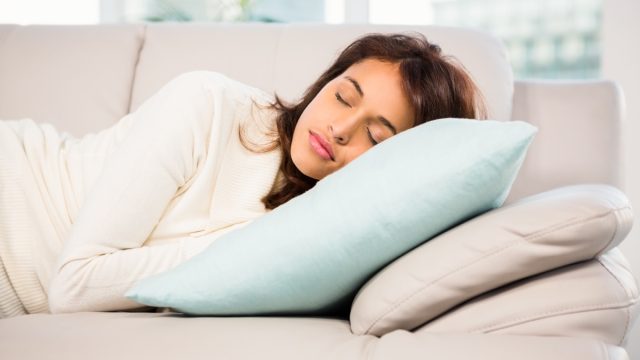
About one in three adults in America regularly take naps, according to a 2009 survey conducted by the Pew Research Center. But that means two-thirds of adults in the U.S. are likely just chugging five cups of coffee and barreling through the day instead of taking a 20-minute snooze to recharge. If you're one of those people avoiding an afternoon shut-eye session, we're here to offer you some tips and tricks for taking the perfect nap.
1
Invest in a white noise machine.
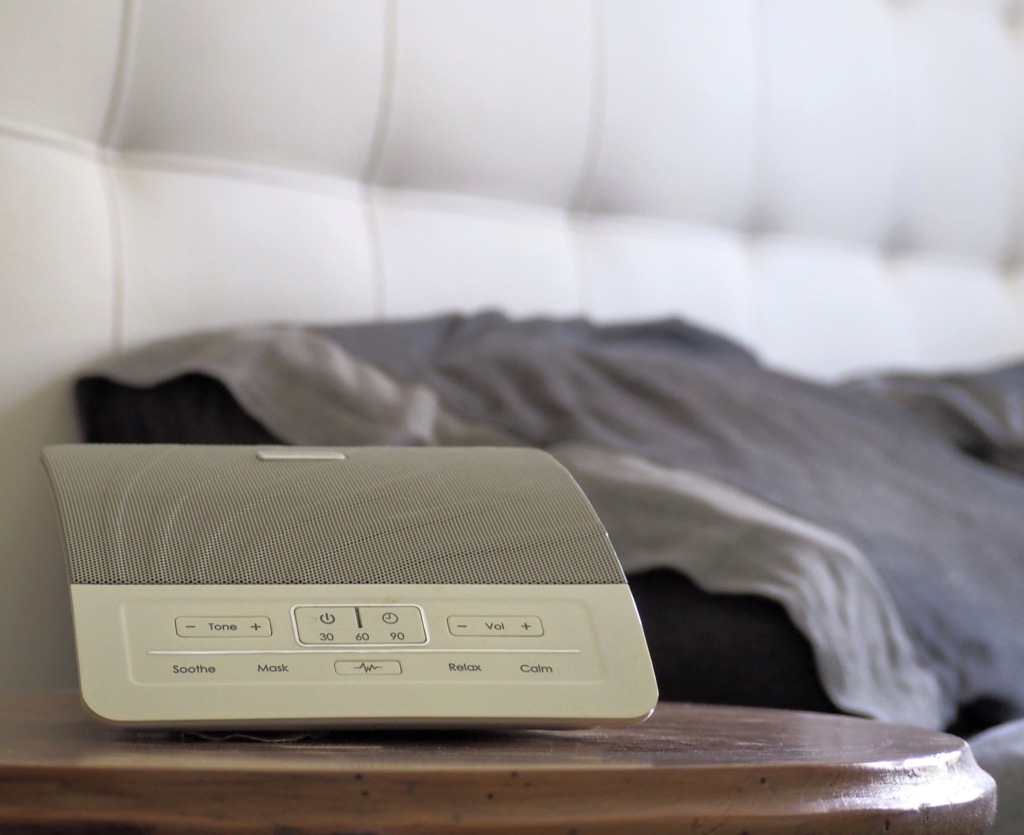
In order to make the most of your snooze, you need to make sure to drown out any noise that might disrupt your slumber. And, according to Matthew Ross, co-founder and COO of sleep and mattress review site The Slumber Yard, you can easily (and affordably) block out sounds with a white noise machine.
"One product I've found extremely helpful for taking a peaceful nap is a white noise machine," says Ross. "It helps drown out all the outside noise so you can relax and quickly doze off. They ensure you're not annoyed or tense from your neighbor's dog barking or your children playing downstairs."
2
Take a cold shower.
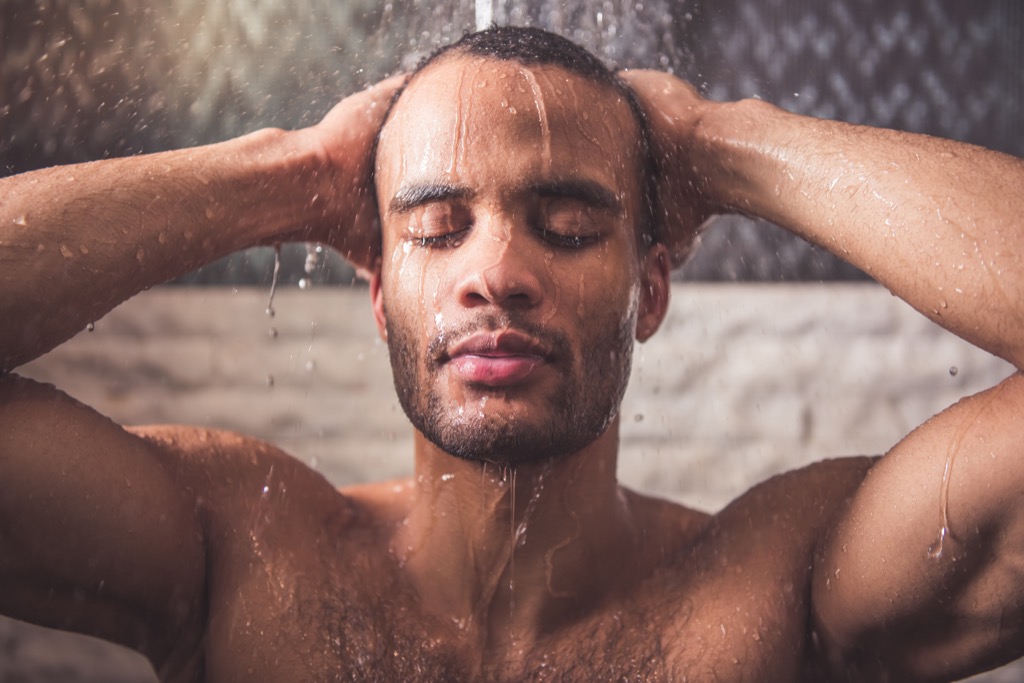
Especially in the heat of the summer, keeping your body temperature low is ideal for the perfect nap, says Ross. "Taking a cold shower will drop your body temperature before laying down. This will make you more comfortable and make it easier to fall asleep," he explains.
3
Stretch it out.
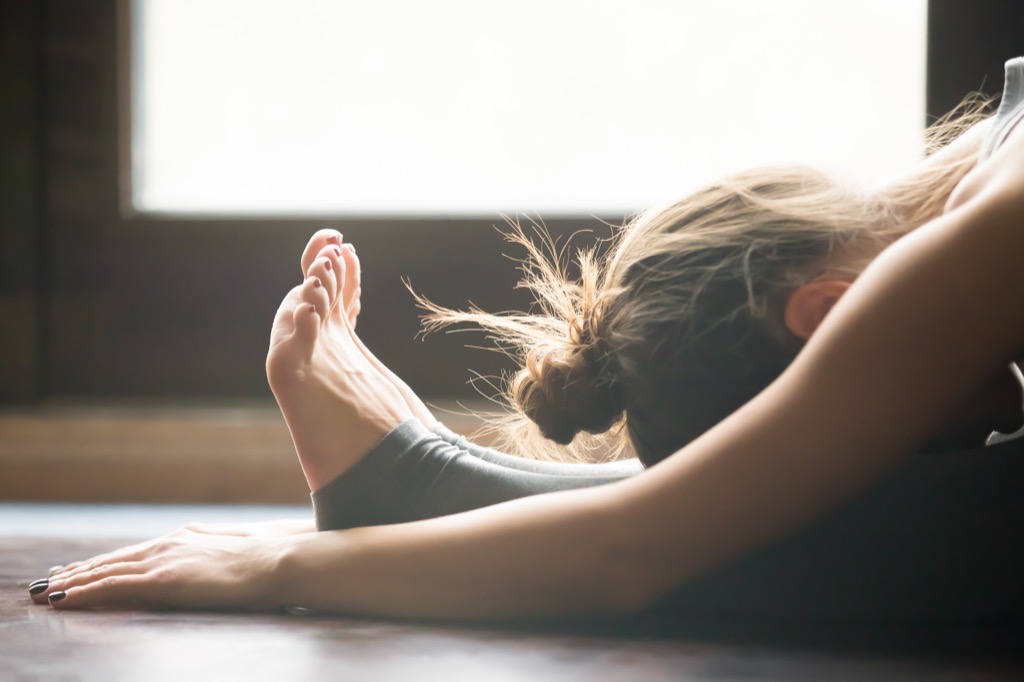
Around 15 to 30 minutes before your nap, trying easing your body into rest by stretching. "If I try to go to sleep tight, I end up tossing and turning a lot in order to find a comfortable position," says Ross. "I'd recommend some light stretching as you get ready for a nap. This will help loosen your muscles and get your body in a relaxed state for sleep."
4
Grab a cup of joe.
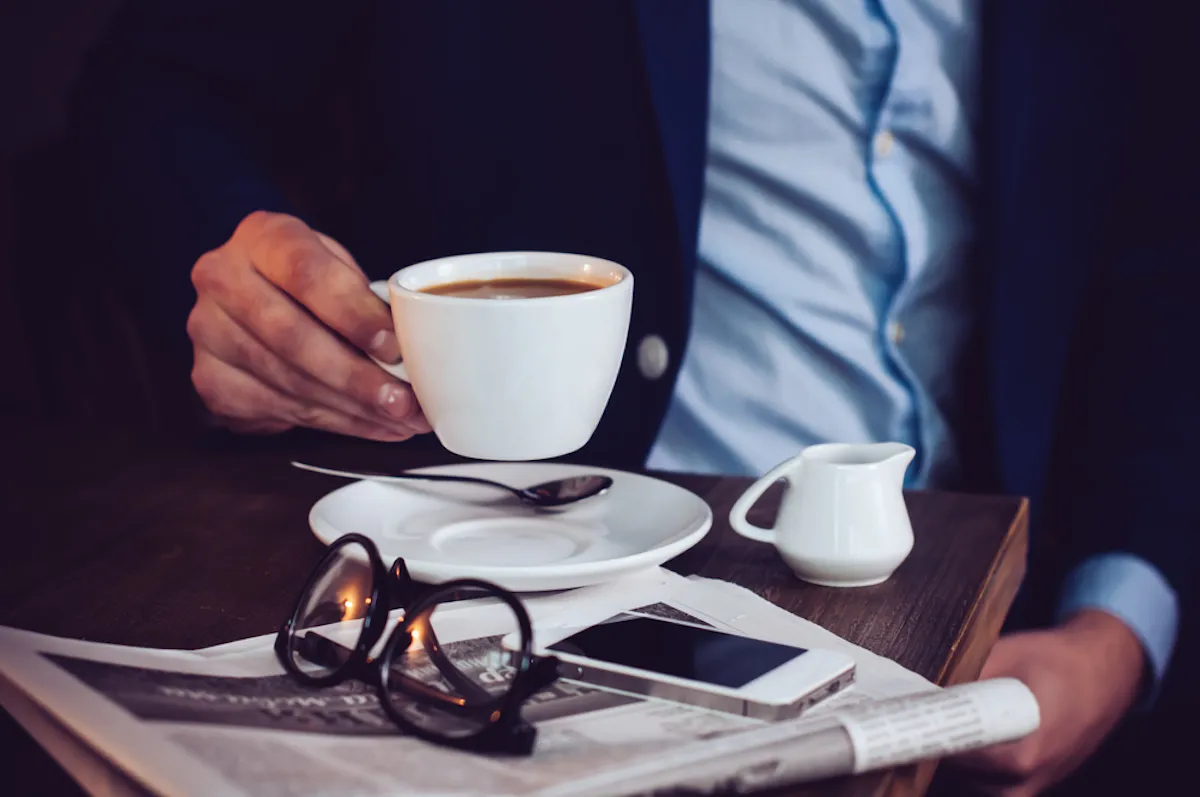
That's right: Drinking a cup of coffee before you hit the hay can actually benefit you in the long-run, says Katie Golde, editor and head of sleep research at Mattress Clarity.
"If you're short on time, you can consider a 'coffee nap'—also called a caffeine nap—which involves drinking coffee or caffeine and then immediately taking a short 20-minute nap," explains Golde. "The idea is you'll wake up when the caffeine kicks in, and you'll skip the groggy feeling that is also known as sleep inertia."
5
Keep it short and sweet.
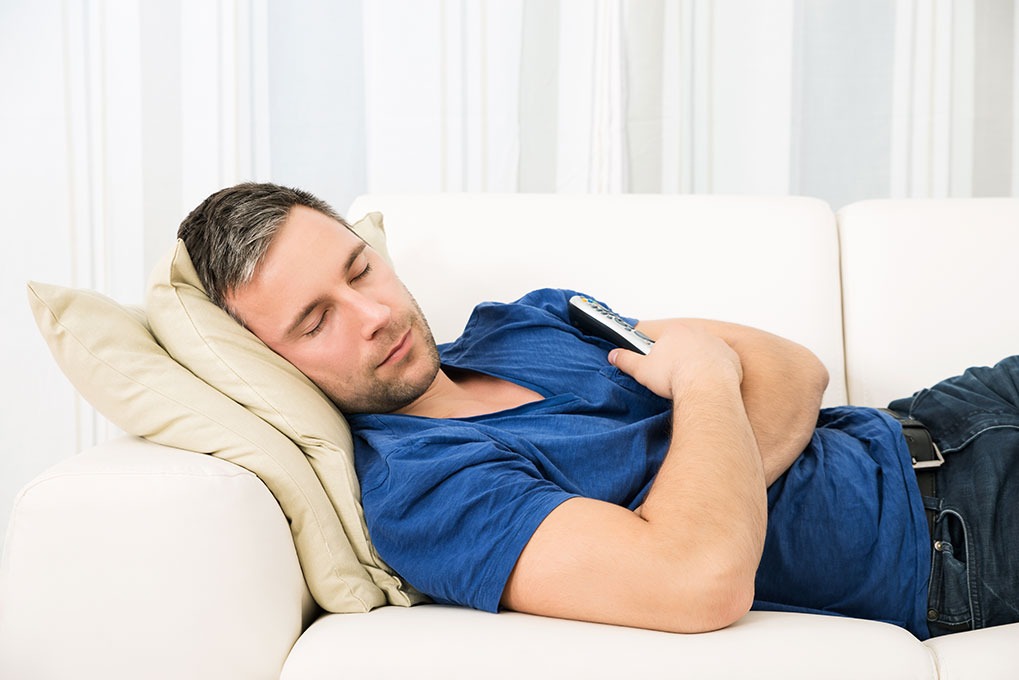
To truly ensure that your afternoon snooze works to your benefit, plan to keep your naps short and sweet. How short? The National Sleep Foundation recommends limiting naps to just 20 to 30 minutes, as resting any longer will only make you groggier than you were before the nap.
Not only that, but napping for longer periods of time is sure to wreak havoc on your regular sleep schedule and leave you feeling perpetually tired.
6
Snooze in the afternoon.
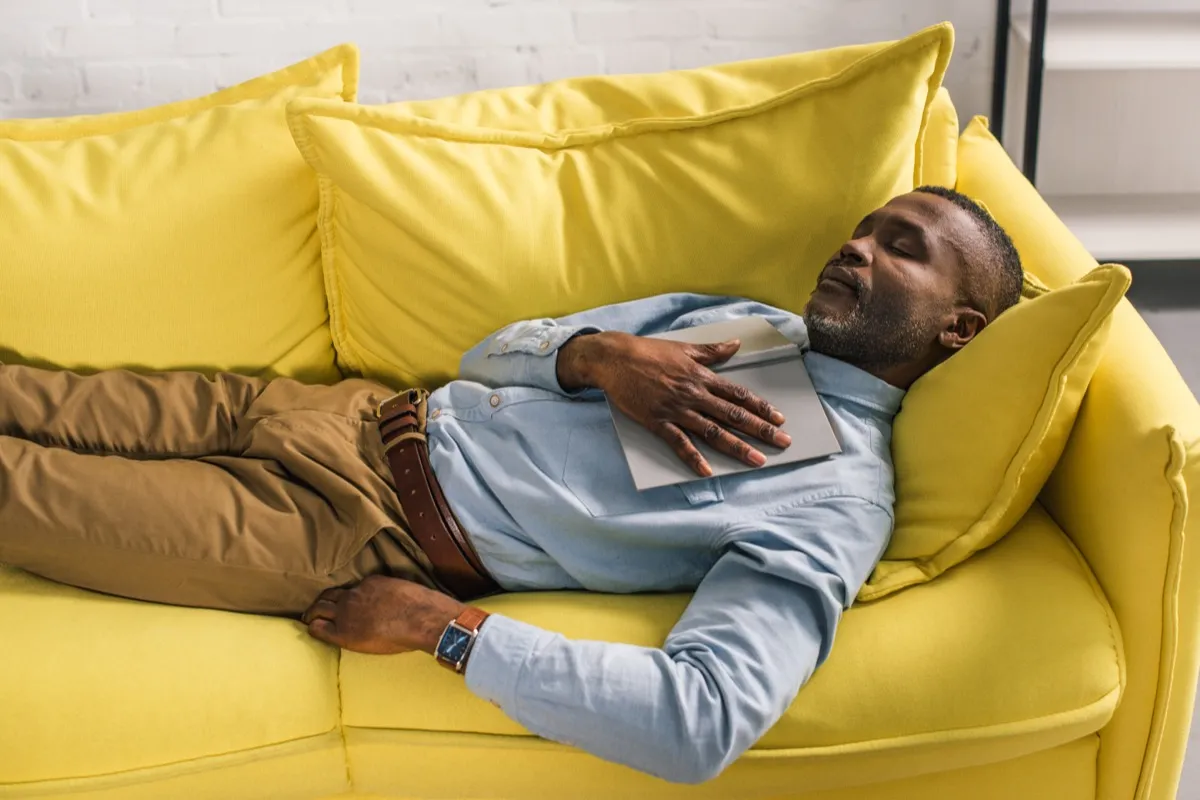
If you work a 9-to-5 job, Golde recommends planning your snooze for the afternoon, specifically between 2 p.m. and 3 p.m. "[This] will help with your low levels of alertness, but will be too early to interfere with bedtime," she explains.
And if you work other hours, plan to take your nap around two to three hours before the end of your shift to reap the same energizing benefits.
7
Find a dark area to doze off.
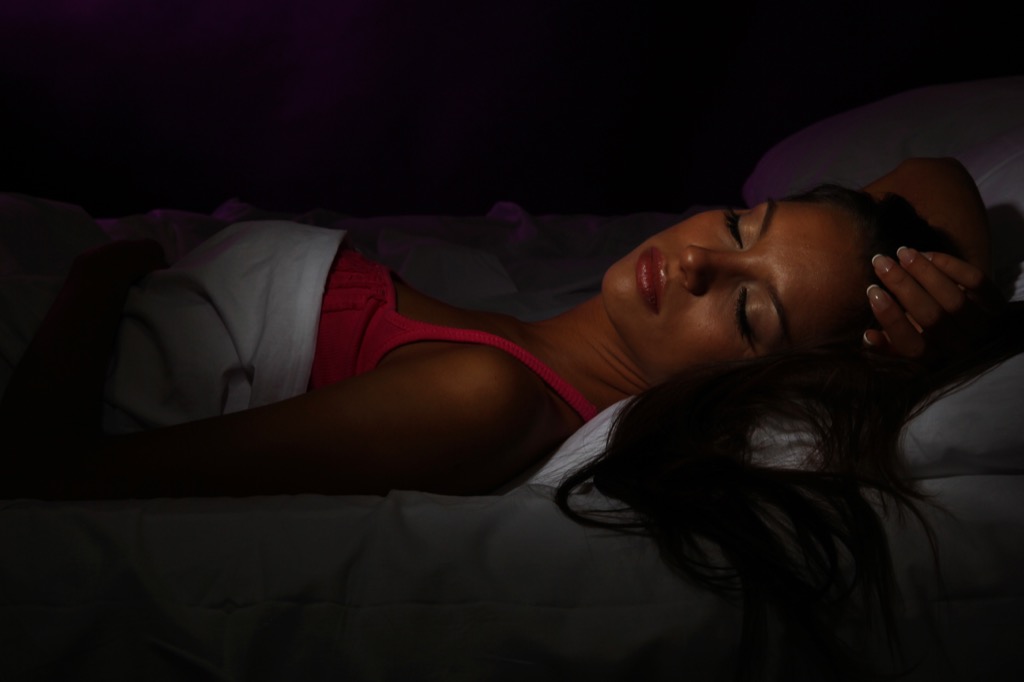
"You'll have the most successful nap if you practice good sleep hygiene by keeping your nap area dark, cool, and quiet," says Golde. "Earplugs or a white noise machine won't hurt if you're in an area where you could be interrupted during a light sleep stage."
8
Steer clear of digital devices.
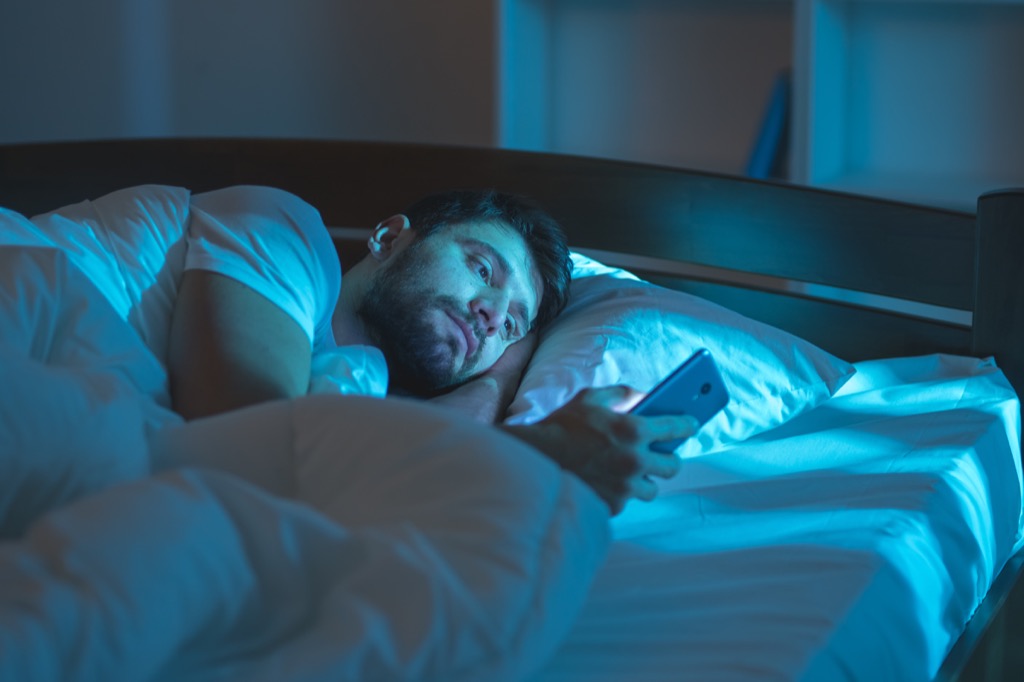
Unsurprisingly, scrolling through Facebook as you settle in to slumber isn't exactly the best way to ensure quality shut-eye. Rather than run the risk of wasting your entire lunch break looking at social media instead of getting quality sleep, it's best to stow away those electronics that only increase your brain's alertness.
"Artificial lights, such as neon and electronics, can be an aggressive stimulus to our brain. The more different sources of light we have, the more alert we will be," says Dr. Nikola Djordjevic, MD, founder of MedAlertHelp.org. "Our bodies are designed to rest during the nighttime when it is completely dark. Removing unnecessary light from the room we sleep in can significantly improve the nap quality."
9
Stick to the couch.
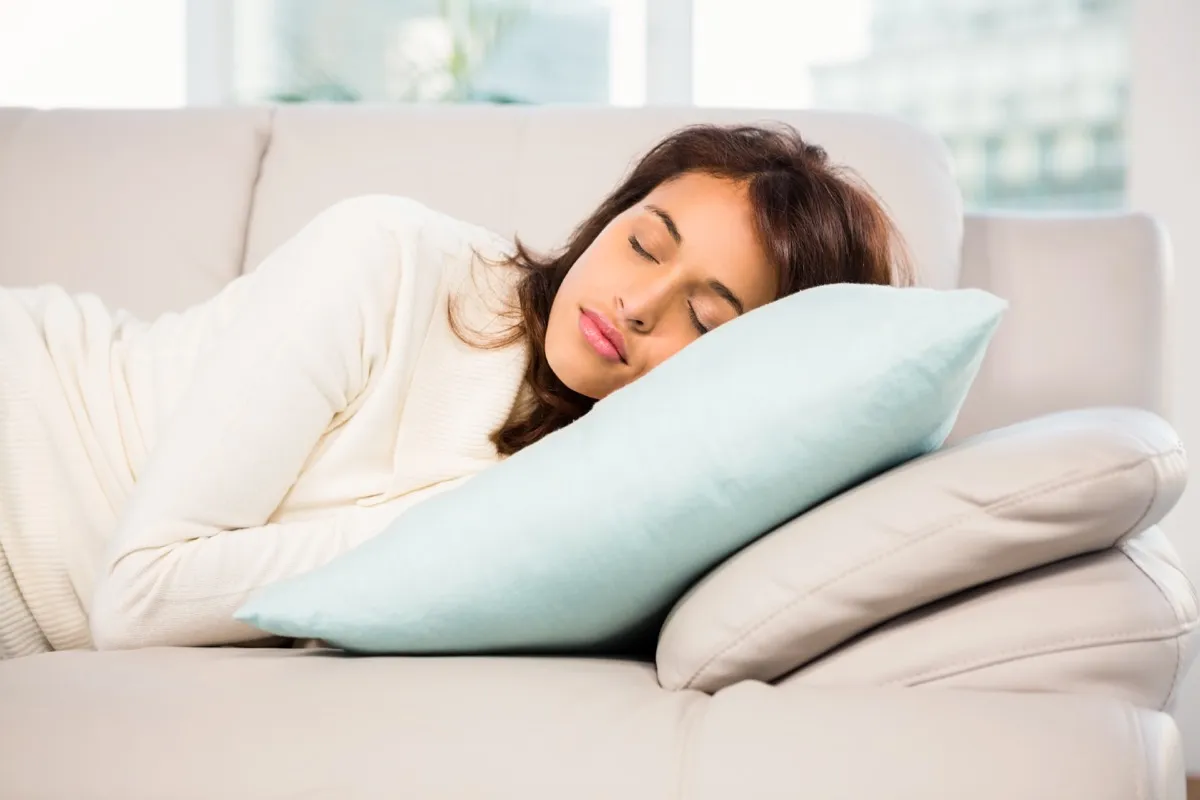
Opting to nap on your couch instead of on your bed is one of the best things you can do, Michael Grandner, Ph.D., a psychiatry instructor at the University of Pennsylvania's Perelman School of Medicine, told Health. Since the bed can inspire you to take a longer, more leisurely nap, the couch is always a better option if you're hoping to keep your snooze short and sweet.
10
Sniff some lavender.
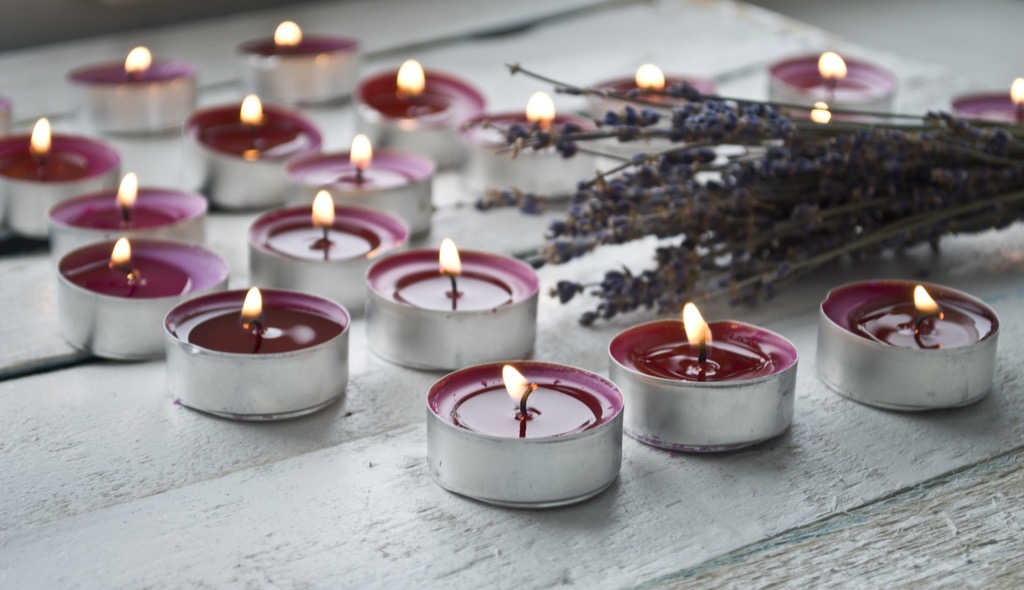
Keep some lavender around your designated nap area to make sure that your mind and body have the same goal: restful slumber. According to a 2013 article published in the journal Evidence-Based Complementary and Alternative Medicine, a few drops of lavender can improve the quality and duration of sleep, as well as leave you feeling more rested.
11
Meditate before your nap.
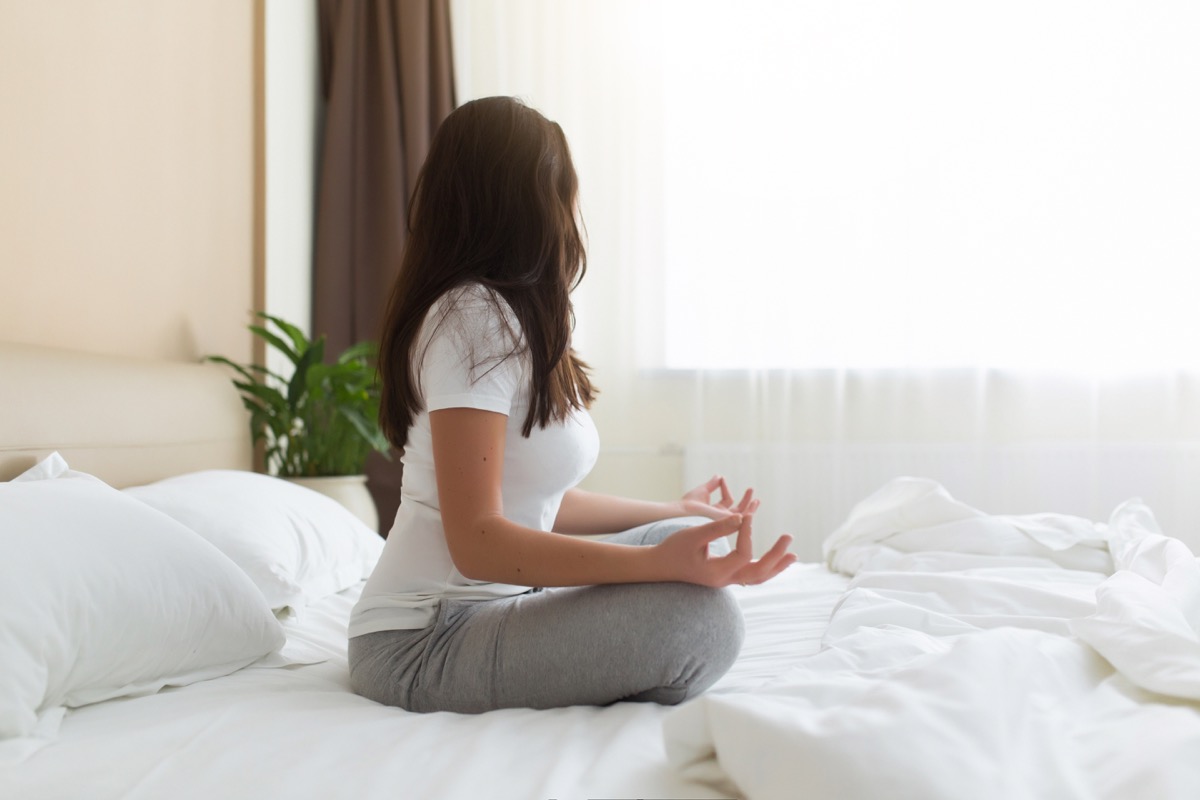
Meditating before a nap can prove to be incredibly beneficial as it gives you time to make peace with your thoughts and send them far away. However, as Sleep Advisor suggests, you should schedule your meditation time to end at least an hour before your nap. During meditations, remain as alert as possible in order to be able to gather your thoughts and redirect them in a positive way.
12
Ensure that there will be no interruptions.
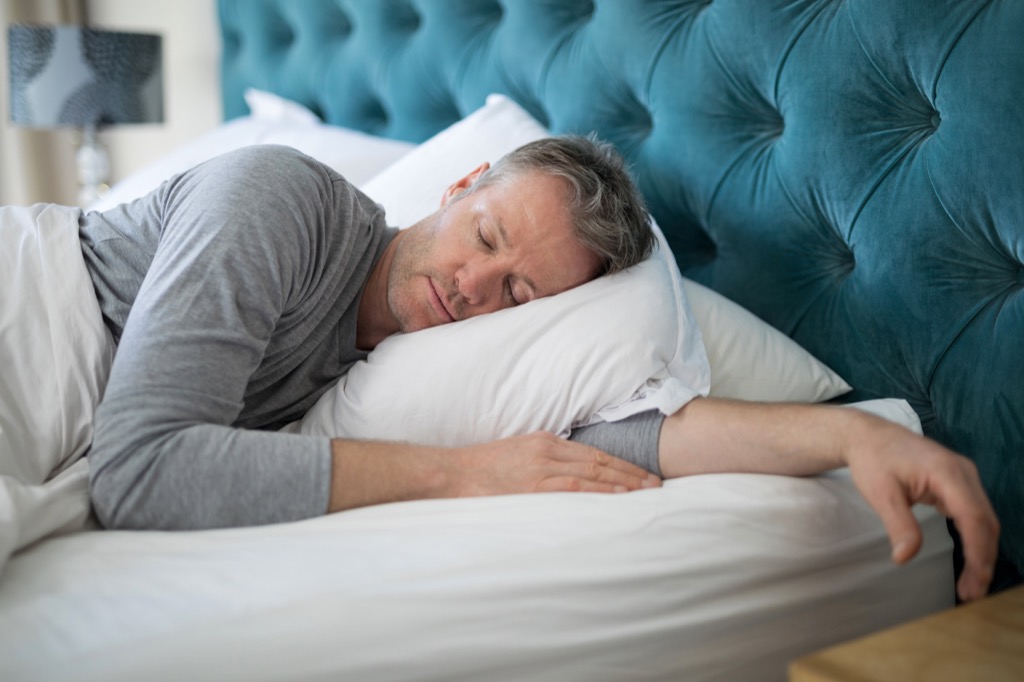
Ideal napping stations should come equipped with a lock. This way, you won't have to worry about intruders or distractions during your short stint of slumber.
13
Try an acu-nap.
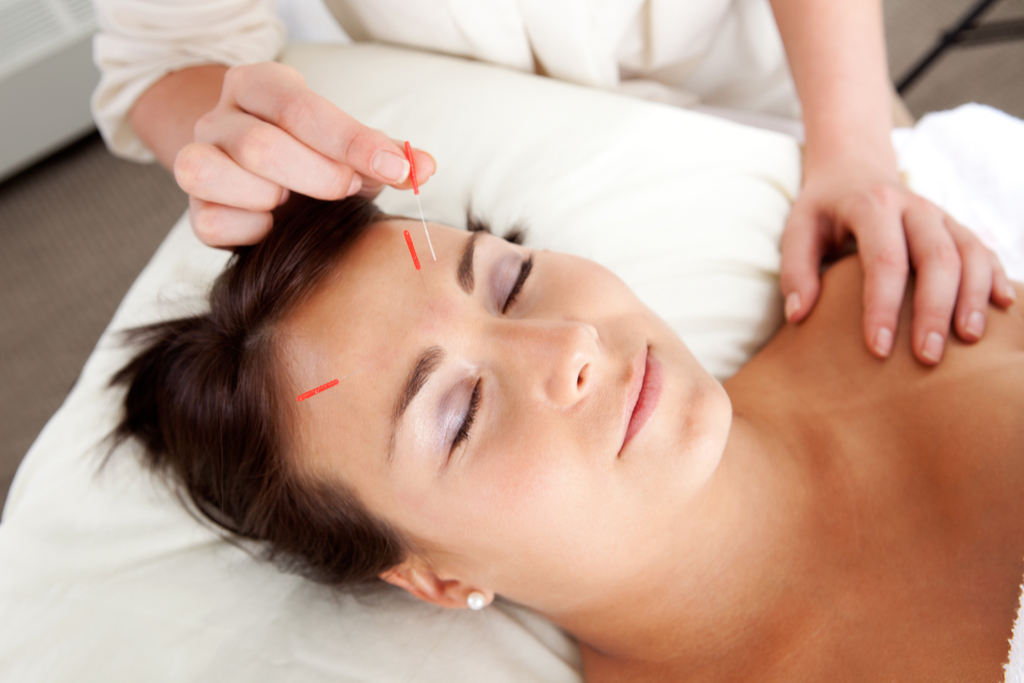
Though falling asleep with needles in your body may sound uncomfortable, a snooze happens to be a fairly common side effect of a great acupuncture session, as Eva Zeller, a licensed acupuncturist, told Well + Good.
This alternative medicine allows the body to silence its alarm bells, thus helping you to achieve a blissful state of calm and relaxation. Acupuncture naps are also able to help you achieve REM sleep in a matter of minutes.
14
Set an alarm.
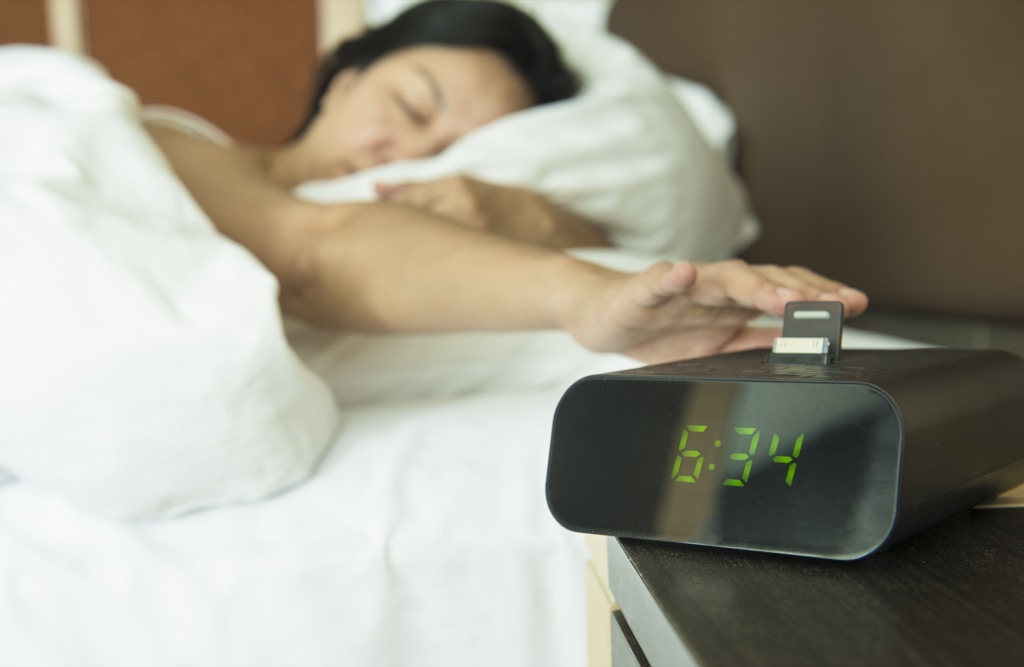
If your body isn't used to taking 20-minute naps, setting an alarm is a useful way to get it acquainted with this new sleep schedule. Plus, since you probably don't want to miss your 3 p.m. meeting with your boss, setting an alarm will help ensure that you don't oversleep—or that you don't worry about oversleeping so much that it makes impossible for you to close your eyes at all.
15
Try resting.
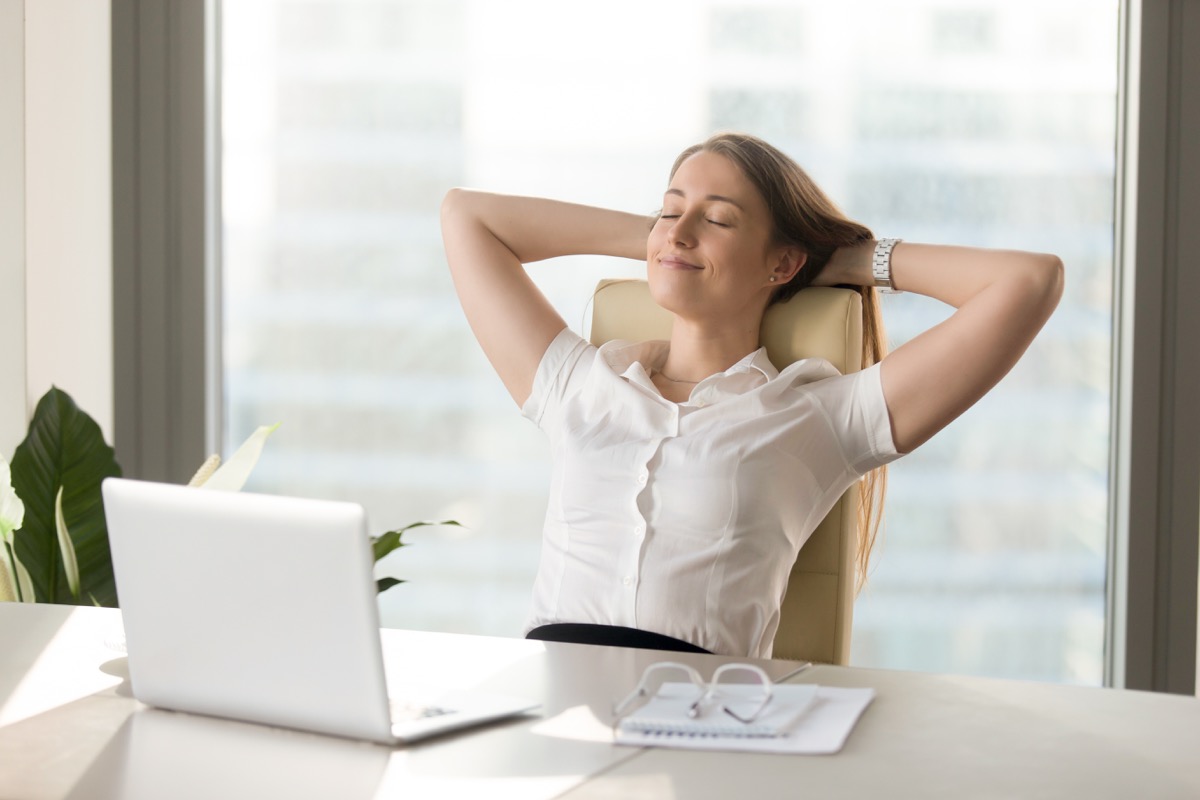
If you find that you have trouble taking a nap during the day despite feeling exhausted, simply closing your eyes and letting your thoughts drift off to more relaxing pastures can do wonders for your alertness. Even just a few moments of silence and relaxation can provide the boost that your day so desperately needs.
16
Experiment to find your perfect nap time.
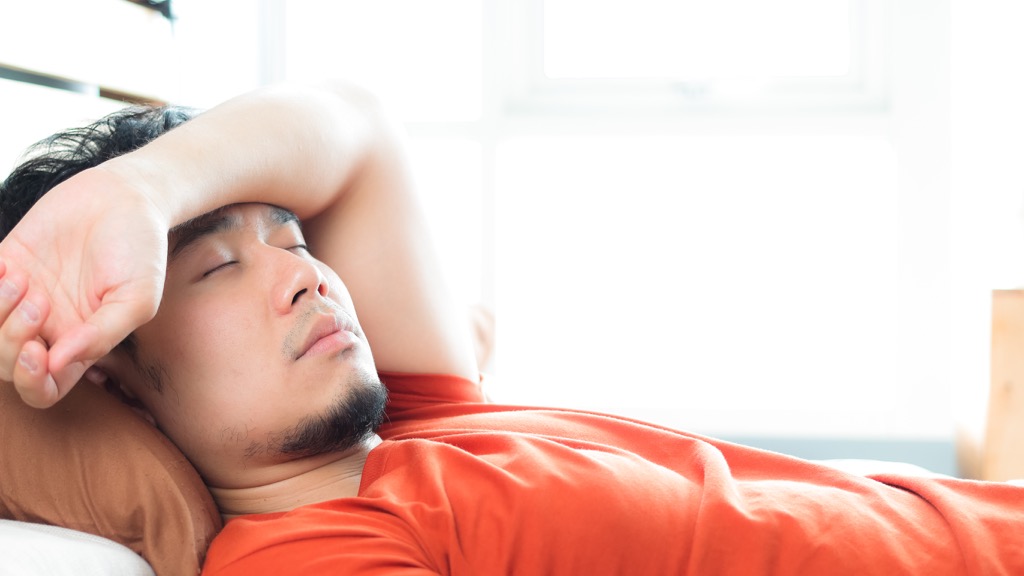
While it's recommended that you take your nap during the afternoon for 20 minutes, that doesn't work for some people—and that's totally OK. "Many people swear by a 20-minute power nap, while some people find that 45 minutes is the sweet spot for them. Our bodies need rest, especially as we age … but the effects vary from person to person," says Bill Fish, a certified sleep science coach and co-founder of the sleep-focused website Tuck. "The time of the nap also can play into its effectiveness. If you wake up at 6 a.m., for instance, your optimum nap time would be 1 p.m. Experiment with naps at different times of day as well as durations to find out what leaves you the most refreshed."
17
Then, maintain it regularly.

Enforcing a daily nap schedule will keep your body's sleep schedule in perfect harmony, says leadership mentor and lifestyle coach Michael Hyatt. One easy way to do this? "Schedule it," he advises. Napping at the same time every day helps to stabilize your circadian rhythm and allows you to maximize the benefits of the peaceful practice. And to learn why you should care more about resting and recharging, This Is What Getting Too Little Sleep Does to Your Brain.
To discover more amazing secrets about living your best life, click here to follow us on Instagram!





















